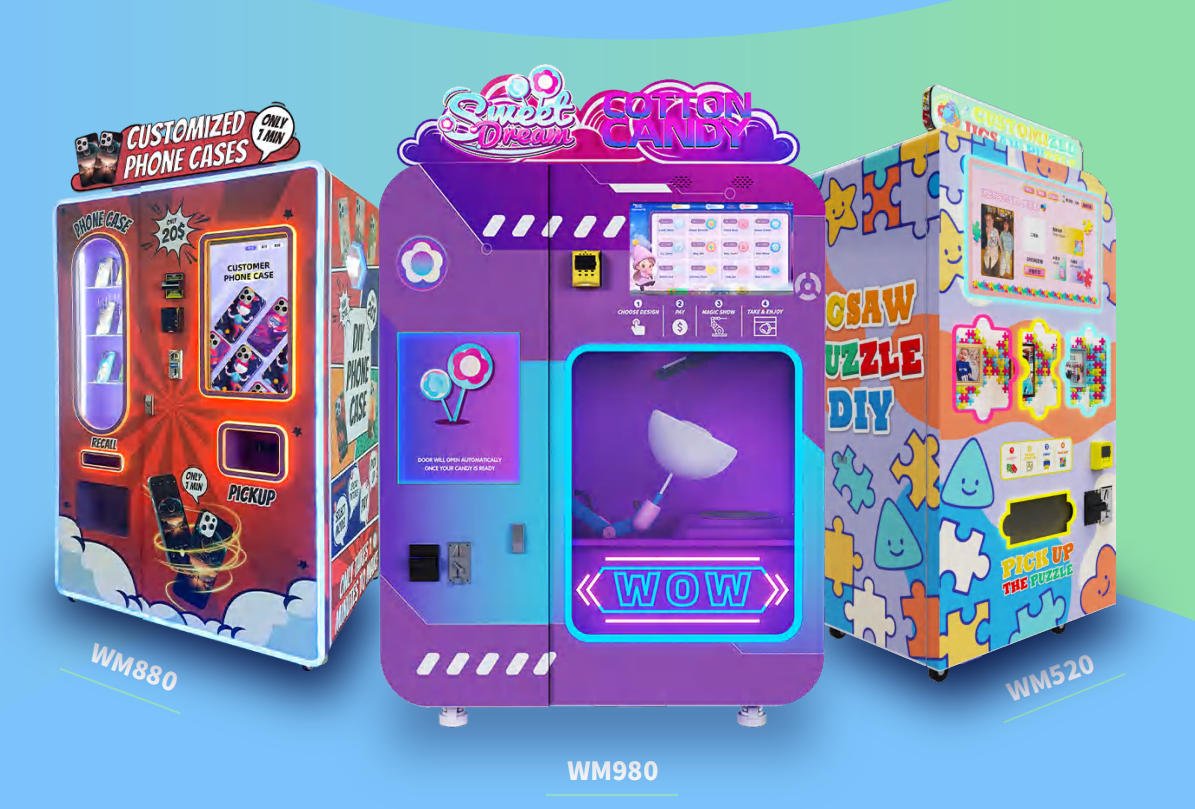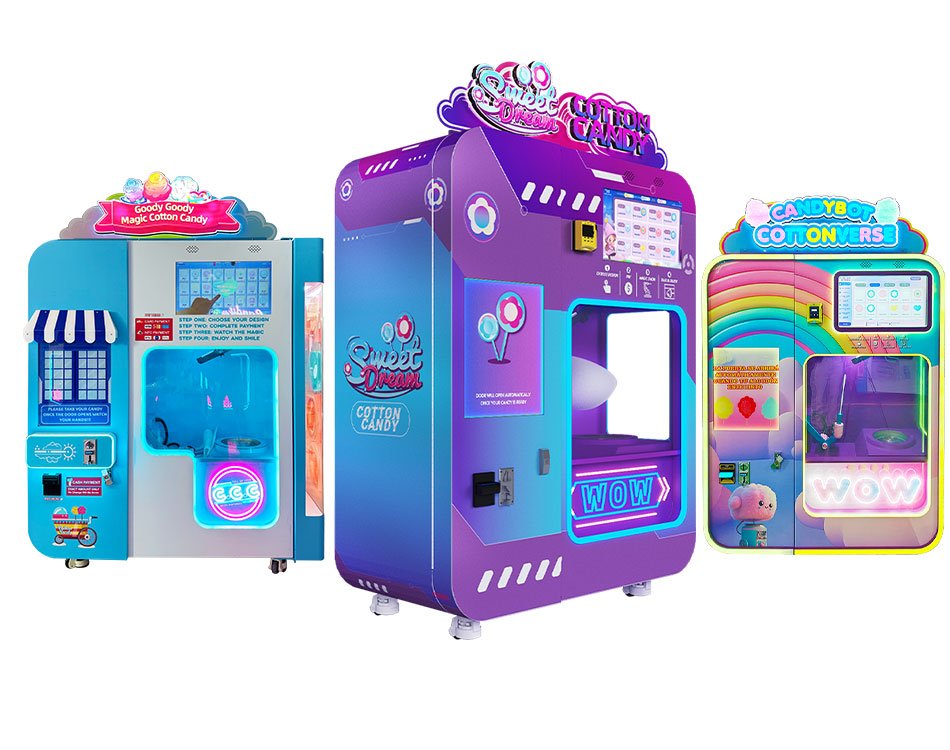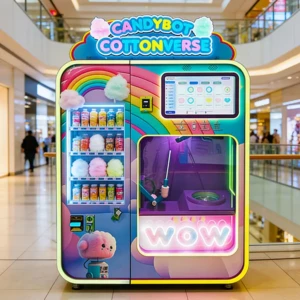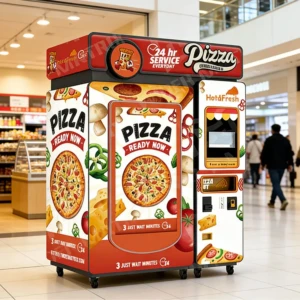Vending machines have long been a symbol of passive income potential, but how profitable are they really in today’s market? Whether you’re considering traditional snack machines or innovative options like fully automatic cotton candy vending machines, understanding the financial realities is crucial. This comprehensive guide breaks down costs, profit margins, and key success factors to help you make an informed investment decision.

Understanding Vending Machine Profitability Factors
Several key factors determine whether your vending machine business will be profitable:
- Machine type and product selection (snacks vs. specialized machines)
- Location quality and foot traffic
- Initial investment and ongoing operational costs
- Product pricing and profit margins
- Maintenance requirements and downtime
Traditional vs. Specialty Vending Machines: Profit Comparison
| Machine Type | Average Cost | Monthly Profit Potential | ROI Period |
|---|---|---|---|
| Snack/Soda Machine | $3,000-$5,000 | $200-$500 | 12-24 months |
| Phone Case Vending Machine | $8,000-$12,000 | $800-$1,500 | 8-15 months |
| Cotton Candy Machine | $10,000-$15,000 | $1,000-$2,500 | 6-12 months |
| Pizza Vending Machine | $15,000-$25,000 | $1,500-$3,000 | 10-18 months |
Breaking Down the Numbers: Costs vs. Revenue
To accurately assess profitability, let’s examine both sides of the equation:
Initial Investment Costs
- Machine purchase: $3,000-$25,000 (depending on type)
- Location fees/commissions: 10-25% of sales or flat monthly rate
- Initial inventory: $200-$1,000
- Installation/transport: $200-$1,000
- Permits/licenses: $50-$500 (varies by location)
Ongoing Operational Expenses
- Restocking inventory: 30-50% of revenue
- Credit card processing fees: 2-4% of card sales
- Maintenance/repairs: $50-$200 monthly average
- Electricity: $20-$100 per machine monthly
- Insurance: $500-$1,500 annually

Maximizing Your Vending Machine Profits
Success in the vending machine business isn’t automatic – it requires strategy. Here are proven methods to boost profitability:
1. Location Optimization
The single most important factor in vending machine profitability is location. Ideal spots include:
- High-traffic areas with “captive audiences” (hospitals, schools, airports)
- Locations with limited food options (factories, office buildings)
- Entertainment venues where impulse buys thrive (arcades, bowling alleys)
2. Product Selection Strategy
Companies like Wider Matrix have revolutionized profitability through specialized machines offering:
- Higher-margin unique products (custom phone cases, fresh cotton candy)
- Premium pricing opportunities (personalized items)
- Lower competition compared to traditional snack machines
3. Smart Pricing Approaches
Consider these pricing strategies:
- Bundle deals (2 for $5 instead of $2.75 each)
- Premium pricing for convenience (airports, hotels)
- Dynamic pricing for special events
Real-World Profit Examples
Let’s examine actual scenarios from vending machine operators:
Case Study 1: Office Building Soda Machine
- Location: 300-employee corporate office
- Monthly sales: $1,200
- Product cost: $480 (40%)
- Location commission: $240 (20%)
- Net profit: $480/month
Case Study 2: Mall Cotton Candy Machine
A Wider Matrix WM980 cotton candy machine in a busy mall:
- Average sales: 40 units/day at $8 each
- Monthly revenue: $9,600
- Product cost: $2,880 (30%)
- Mall commission: $1,920 (20%)
- Net profit: $4,800/month

Frequently Asked Questions
How much can I realistically make from a single vending machine?
Most single machines generate $200-$800 in monthly profit, with high-performing specialty machines in excellent locations potentially earning $1,000-$3,000/month.
What’s the average ROI period for vending machines?
Traditional machines typically see ROI in 12-24 months, while innovative models like those from Wider Matrix can achieve ROI in 6-15 months due to higher profit margins.
How many hours per week does vending machine maintenance require?
Most operators spend 1-3 hours per machine weekly on restocking, cleaning, and maintenance. Automated solutions like remote monitoring can reduce this time.
Are vending machines affected by economic downturns?
Vending machines are relatively recession-resistant, though product mix may need adjustment (more value-oriented items during tough economic times).
What makes Wider Matrix vending machines different?
Wider Matrix specializes in high-margin, innovative vending solutions like custom phone case machines and automated cotton candy makers, combining cutting-edge technology with proven business models for faster ROI.
How do I find good locations for my machines?
Start by approaching businesses with high foot traffic, limited food options, and “captive audiences.” Offer competitive commission rates (15-25%) and emphasize convenience benefits.
What are the hidden costs of vending machine ownership?
Beyond obvious expenses, consider: machine depreciation, credit card processing fees, cash collection/processing time, and occasional vandalism repairs.
Related Topics
- How Much Can You Make with a Cotton Candy Machine?
- Is a Cotton Candy Machine a Good Investment?
- Innovative Vending Machine Business Ideas
- Latest Vending Machine Technologies
- How to Start a Vending Machine Business
Final Thoughts on Vending Machine Profitability
When properly managed with the right products in strategic locations, vending machines can deliver solid returns with relatively low time investment. While traditional snack and soda machines offer modest profits, innovative solutions from companies like Wider Matrix demonstrate how specialization and technology can significantly enhance profitability. Their vending machines combine automation with high-demand products to create attractive business opportunities with faster payback periods.
Ultimately, your success will depend on careful location selection, smart product choices, and efficient operations. With the right approach, vending machines can be a profitable addition to your income streams or even grow into a full-fledged business.






Comments
No comments yet. Be the first to comment!